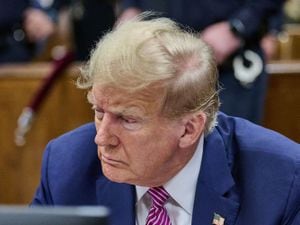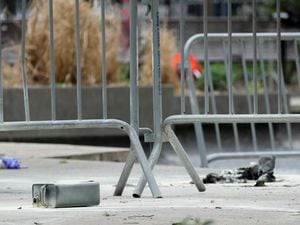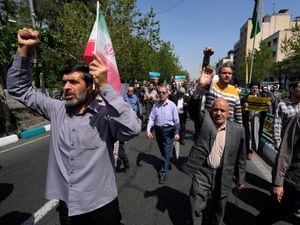Questions raised over Tokyo’s infection spike after Olympics delay
There are concerns that Japan may have diminished the full impact of the virus prior to the Olympics being postponed.

A spike in Tokyo’s coronavirus cases following the postponement of the Olympics has raised questions as to whether Japan purposely understated the extent of the outbreak in the hope the Games would run as scheduled.
With the Olympics now off, many are voicing suspicion that the numbers are rising because Japan suddenly has no reason to hide them.
“In order to make an impression that the city was taking control of the coronavirus, Tokyo avoided making strict requests and made the number of patients look smaller,” former Japanese Prime Minister Yukio Hatoyama said in a tweet.
“The coronavirus has spread while they waited. (For Tokyo Governor Yuriko Koike) it was Olympics first, not Tokyo’s residents.”
Experts have found a rise of untraceable cases mushrooming in Tokyo, Osaka and other urban areas — signs of an explosive increase in infections.

Prime Minister Shinzo Abe said on Saturday that Japan is now on the brink of a huge jump in cases as it becomes increasingly difficult to trace and keep clusters under control.
“Once infections overshoot, our strategy… will instantly fall apart,” Mr Abe warned.
“Under the current situation, we are just barely holding up.”
Under the current situation, we are just barely holding upHe said a state of emergency is not needed just yet, but that Japan could at any time face a situation as bad as in the United States or Europe.
There was less of a sense of urgency displayed recently when many people visited parks for cherry blossom viewing, and Mr Abe was only hinting at an Olympic postponement.
But in a phone call with International Olympic Committee President Thomas Bach last Tuesday, the prime minister agreed to postpone the games until around the summer of 2021 because of the coronavirus pandemic.
A day later, governor Koike asked Tokyo residents to stay home weekends until mid-April, saying confirmed cases of the coronavirus had shot up to 41 in a day from 16 earlier in the week.
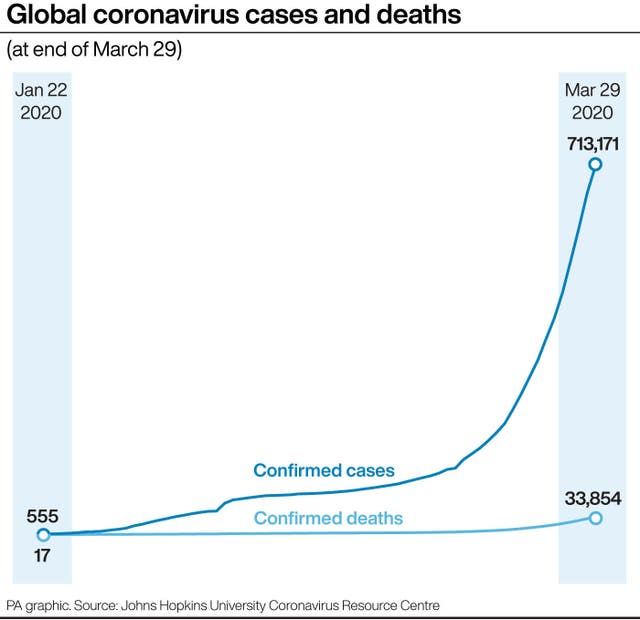
On Saturday, Tokyo reported 63 new cases, another single-day record.
The governor said that infections in Tokyo were on the brink of an explosive increase, and that stronger measures, including a lockdown, could be needed if the spread of the virus doesn’t slow.
“Is this just a coincidence?” Maiko Tajima, an opposition lawmaker from the Constitutional Democratic Party of Japan, said during a parliamentary session last Wednesday, citing Tokyo’s sudden spike.
Health Minister Katsunobu Kato said there is “absolutely no relationship” between the Olympic postponement and the number of confirmed cases.
Mr Abe cited experts as saying a big reason for the recent rise is the growing number of cases that cannot be linked and a jump in infections from abroad.
The prime minister told people to “be prepared for a long battle”.
A day after Ms Koike’s warning, Mr Abe convened a new task force under a recently enacted special law that would allow him to declare a state of emergency in specific areas, including Tokyo.
Japan’s strategy has been to focus on clusters and trace infection routes rather than testing everyone.
Experts set a high bar for testing eligibility, allowing them only for those linked to clusters or those with symptoms, because they fear massive testing will fill up beds that are needed for patients in severe need, and cause a collapse of medical systems.
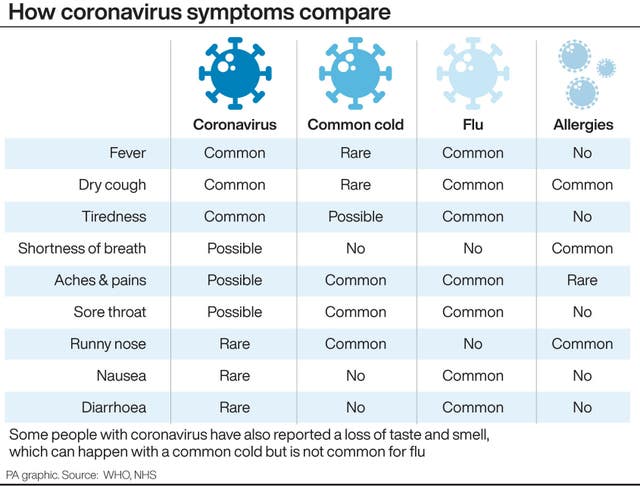
From February 18 to March 27, Japan tested about 50,000 people, a daily average of 1,270.
South Korea, by contrast, had tested about 250,000 people by mid-March.
“I’m aware that some people suspect Japan is hiding the numbers, but I believe that’s not true,” the prime minister said.
“If there is a cover-up, it will show up in the number of deaths.”
As of Sunday, Japan had 2,578 confirmed cases, including 712 from a cruise ship, with 64 deaths, according to the health ministry.
Among the dead is popular Japanese comedian Ken Shimura, who died early on Monday. The 70-year-old is the country’s first well-known celebrity victim of the disease.
About 1,000 people have recovered.

